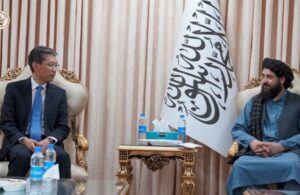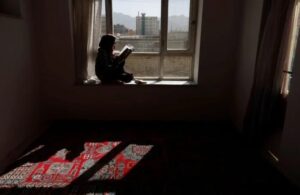KABUL (SW) – The Afghanistan Independent Human Rights Commission said on Monday the escalation of targeted attacks against journalists and the media has led to self-censorship in the country.
It said in a statement that freedom of expression is one of Afghanistan’s most significant achievements over the past twenty years. It added targeted killings of journalists in the past few months have had a negative impact on media across the country.
“Media officials say that many female journalists from the provinces have left their jobs. It is very difficult for journalists to have access to the districts, even those near the provincial centers. They cannot easily move around the city. When those working in media including journalists are threatened, they refer to government security agencies, but, according to journalists, their concerns and demands are not given sufficient attention by the security institutions”, said AIHRC.
At a meeting on December 26, 2020 over a hundred journalists and representatives of media support organizations shared their concerns and challenges with Shaharzad Akbar, the Chairperson of Afghanistan Independent Human Rights Commission (AIHRC) and the Commission’s leadership.
“There has been a lot of psychological pressure on those working in media in Afghanistan in recent months due to the environment of fear and intimidation created by the targeted attacks. The media community are worried about more restrictions that could affect their work and their lives. The government of Afghanistan has not shared sufficient information on preventing the targeted killings of journalists and prosecuting the perpetrators”, said the AIHRC.
In the meeting, journalists said they might be forced to flee the country if the government fails to ensure their safety. In addition, the escalation of targeted attacks against journalists and the media has led to self-censorship, which can have serious negative effects on their reporting, especially investigative reporting in the provinces.
“In addition, the Government of Afghanistan dismantled the spokesperson position for the provincial governor offices on Dec. 2, 2020. Since then, the governors themselves are responsible for giving information to media. Dismantling this position has caused concern about disruption in the free circulation of information in the country. Most journalists complain about lack of access to information and data at the provincial level. To this end, the media call on the government to ensure freedom of expression and respect people’s right to access information by revising the decision about dismantling the spokesperson position in the provincial governors’ offices”, said the AIHRC.
The specific demands of the journalists are noted as below:
- The international community must pressure the warring parties to agree to a ceasefire and end the violence and targeted killings;
- The government of Afghanistan must prevent targeted attacks, ensure security of the journalists, and investigate cases of murder, threat, intimidation and violations against journalists, identify and prosecute the perpetrators and share the results with the people and families of the victims.
- Taliban cannot abdicate responsibility for the attacks by mere denials. Journalists urged the Taliban that if they themselves are not involved, they must share their information and findings with the public. Some journalists expressed their concern over hate-inducing, violent language and narratives by local Taliban-affiliated media regarding independent journalists and free press. This language and narrative can normalize and spread violence against independent media and must stop.
Afghan media operate in an increasingly difficult environment. AIHRC expresses its concern about the threats and limitations facing media and journalists. AIHRC also expresses its empathy and solidarity with victims and survivors of the attacks on media and calls on the international community, Afghan government and Taliban to urgently consider and respond to the demands of Afghan media for support, safety, protection, timely investigations and access to information.
ENDS






